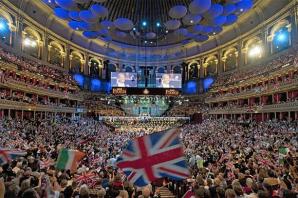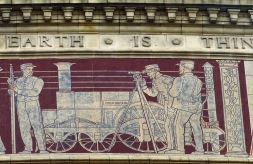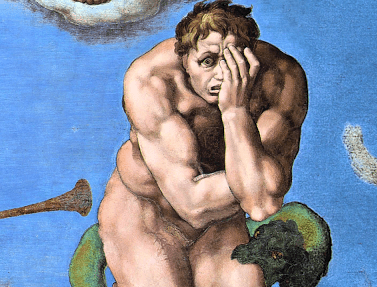The Proms are a London event, and their end marks the end of summer. If you don’t

know them, they are the city’s largest music festival, predominantly classical, filling the vast Royal Albert Hall and several other venues evening after evening for eight weeks – often several times a day – with world class live music. Tickets online can sell out in minutes; tickets for the Last Night (splashy, vulgar, riotously silly and self-indulgently patriotic in a way that loves being British and yet can’t take itself seriously) are by ballot.
I went last week to Verdi’s Requiem – stay with me. I really get that it’s not everyone’s cup of tea.
It’s Verdi – operatic, dramatic and the height of Italianate theatricality.
And it’s a Requiem. Don’t judge me. I went for the music.
Now, I love this piece and to my ears it was a slam dunk of a performance – an absolutely brilliant evening, riveting from the opening chords, so quiet we couldn’t hear them up in the nosebleeds, through a series of bang-and-blast set pieces designed to make you terrified of Judgement Day. And unlike his operas, there aren’t ten minutes of dialogue to move the action on until the next belter of an aria. This is belter after belter without a pause.
Some people reckon Verdi’s Requiem is overblown. But how can you overblow the Last Trumpet?
Some people reckon Verdi’s Requiem is overblown. But how can you overblow the Last Trumpet?
Two things occurred to me.
Should it ever happen that Christian preachers are banned, Christian books burned, and Christian churches shut, the great cultural tradition of the West will still carry the gospel on. I’m not saying Verdi gets the gospel right: I’m saying that the worldview out of which he operates requires you to understand that gospel. Judgement, Resurrection, Salvation, Damnation – why? On what basis? And who can be saved? Who is this Jesus we pray to? Who is this God we believe in?
And of course its bigger than the music. Carved into the outside walls of the Albert Hall,

high above London, are the words, Thine O Lord is the greatness and the power and the glory and the victory and the majesty for all that is in the heaven and in the earth is thine. The wise and their works are in the hand of God. Glory be to God on high and on Earth peace. Every cultural expression within that building happens under a confession of his greatness. That’s three separate bible passages baked into the stone, which will proclaim God’s glory until the Royal Albert Hall falls into dust.
Don’t mishear me. Of course other cultures besides the West have a rich Christian tradition: Stalin deliberately stole from his and twisted it for his vile ends. Art historians need to explain icons. Many a mosque was once a church. And so any contemporary architect will have to explain why that building was originally in the shape of a cross.
Nor am I claiming anything for a notion of Christendom, which would somehow whitewash the West’s deep historical sins. I’m not baptising anything here.
But – for the moment, at least – every concert programme, art catalogue, book introduction, in the land has to explain, to an increasingly untaught population, what Christians believe and why it’s worth singing about, if they are to make sense of almost any cultural artefact preceding the First World War (approx). That’s good in itself.
Second, come back to the reaction to Verdi’s setting of the Requiem. He’s a theatre man really, and the Requiem is when, as some people say, theatre comes to church. And they don’t like it. (Sidebar: they don’t seem to object when Mozart does it, for some reason, yet his Requiem is very bit as theatrical in its way).
And I say – good grief, whoever not? Because if Verdi can move us and thrill us over Otello, Falstaff, Rigoletto, Aida and a dozen others who never existed, why shouldn’t he be allowed to do it in the case of the One who does?
Why wouldn’t we be in dread of the Last Trumpet? Won’t we leap to our feet, heart in mouth, when we hear it?
Shouldn’t we tremble in death’s presence, and thrill at its defeat?
So shouldn’t we preachers use all our skill too, to help people see God’s awesome glory?
Thank about that when you next preach. But before you do, listen to a recording of the Dies Irae (‘Day of Wrath’) from the Requiem on Spotify. Just turn the speakers up first.
PS If you’re in the UK, you can listen to the whole recording from the Albert Hall, on BBC iPlayer. You can thank me later.





Great stuff, Chris!
Thanks, Nigel!
My wife performed Verdi’s Requiem as part of the Essex University choir a few years ago, I went to see it at Snape Maltings. The Dies Irae still sticks in my mind as one of the most dramatic things I’ve ever heard. It certainly helps to think about passages like Revelation 6:15-17 with that in mind!
Yup – still quaking!
I saw Handel’s “Samson” oratorio at the Proms. It was fantastic.